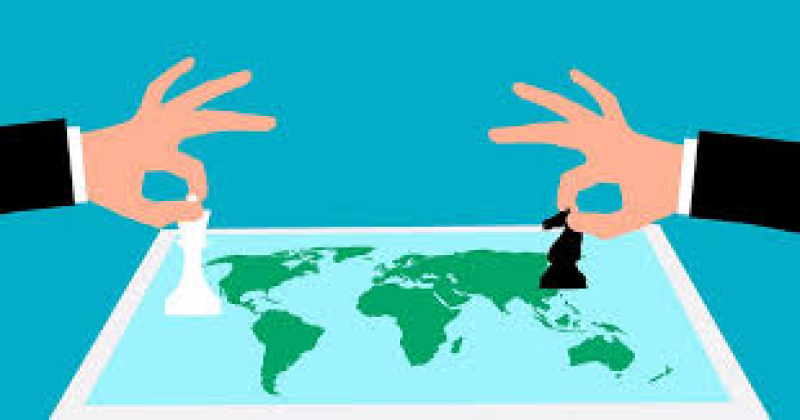- Death toll from central Israel strike rises to 5 |
- DSE sinks 138 points on broad sell-off; CSE also tumbles |
- Inside story of a roommate murder after quarrel in Dhaka |
- Jamaat condemns Khamenei’s killing, holds protest rally in Dhaka |
- Iran to pick next supreme leader in ‘one or two days’ |
The silence shatters

Four recent statements, seemingly unconnected, have chillingly surreptitious significance for the future that few appear to be bothered about. Governments and organizations worth their salt usually do, and should work quietly behind closed doors on multiple choice plans A, B, and C, if not more to address multiple scenarios.
Donald Trump, the leading forerunner as President of the United States, put the cat among the pigeons when he suggested Russia could do “whatever the hell they want to” with NATO countries not meeting their financial obligations of funding the organization.
On the heels of this came another more telling statement. A commitment to reduce US grants, re-channel them as loans, thereby diverting funds to the US economy. That prompted France’s beleaguered President Emmanuel Macron to flag his withering credentials as Europe’s leader by suggesting NATO needed to reinvent itself through a bubble protection against being left in the lurch should the time come for Trump.
IMF Managing Director Christine Lagarde didn’t mince words when she stated the obvious: Europe needs a new economic model divested of US economic clout. The bumbling European Union and the American allies there (read the United Kingdom) have tried to make a bold face of it. Boris Johnson and David Cameron among others know full well how initially Barrack Obama and then Donald Trump snubbed UK persuasion for a preferential trade agreement with the US post-Brexit. Trump was his brutal best in saying the country would have to wait its turn in the pecking order. Nor has the UK’s overtures with India seen much success. With debts at an all time high since the Second World War, the UK is tottering between appeasing living cost woes of citizens whilst seeking a way out of recession.
European reserves have come under further strain in being forced to fund the un-winnable Ukraine War. They may well be left with egg on their faces should Trump emerge victorious by the end of the year. In between there is a curious shift in economic clout. Germany, the best economy in the EU, has toppled Japan as the third largest economy in the world. With that accolade comes a growing voice of a country where the far-right is making further gains with every passing election. As Ms Lagarde cryptically pointed out the “America First” policy furthered by Trump has ramifications that will hurt and spin-off beyond Europe.
Donald Trump and Joe Biden have another matter on their minds. With things as they are, African voices have been raised, supported by China and the United Nations’ Secretary General Antonio Guetteres for a radical reform in the powers of the World Bank and IMF. On one hand, this could be a money saver for the US; on the other, there’s the question of losing influence.
Brazil, a key member of the BRICS grouping, recently expanded and has raised its profile internationally. From an open defiance of the West in taking the Gaza genocide to the International Court of Justice to leading the African voice, Brazil is treading purposefully, though numbly. She, along with another BRICS founder, India, are two of the top lenders of the World Bank. While loans are considered better options than self-finance, the two countries have continued their forays into expensive ventures that suit their domestic agenda. To date, these are the most vocal assertions of sovereign claims.
India has been largely muted in her approach to the Ukraine War, to the point of not inviting Volodomir Zelensky to a G-20 summit. This year’s general elections are pointing to a return to power of Narendra Modi after which, a section of Indian media feels, he will implement the National Register with his party preparing for a possible re-doing of India’s constitution to further the Akhand Bharat agenda. That vision is to undo aspects of the 1947 partition of India. Their thought through positioning is perfect. Cross-border connectivity with Bangladesh has been achieved with more to come. Trade deals have been inked with Myanmar. Kashmir is back where the Bharatiya Janata Party wants.
Whether developing countries have their own visions of alternative plans and the wherewithal to face the changes may well decide the existential crises in the days ahead.
Mahmudur Rahman is a writer, columnist, broadcaster, and communications specialist.

